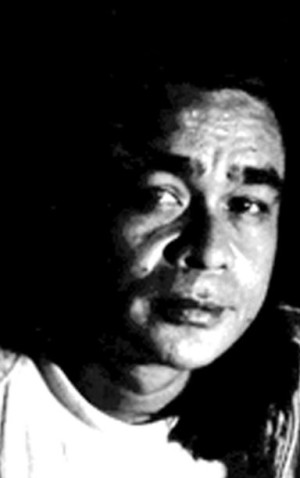
RAYMUND FERNANDEZ
Since 1967, we have come into the age of Popular Culture. This claim comes from the quaint perspective of a painter. 1967 was when Pop artist Andy Warhol caused the making of the painting “Brillo Box.” This painting is a silk screen print of the label of a commercial detergent popular in the US at that time. This painting is historically significant because Warhol demonstrates with it how it is possible to take an icon, any icon, and imbue it with unexpected meanings inside the realm of what was then an emerging global Popular Culture.
The age of Pop Culture actually came around the period of the end of World War II. This was the age of the emergence of communication technologies with a worldwide reach; print media, radio, cinema, television, and computer. These technologies profoundly changed how people define the realities around them. In many ways, it redefined reality itself for humans. Use to be, reality and truth were words taken to be synonymous. If in the past, reality was defined by what went on with neighbors and the neighborhood, present day realities now have less and less to do with neighbors and the neighborhood. Now, it has more to do with what goes on in the world. What goes on in the world being a narrative or story brought to us through television news, newspapers and magazines, movies, and certainly through social networks. We now know this narrative has no obligation to be truthful. What we believe to be reality, now has to be argued about and contested for. All arguments relative to it become actually irresolvable. Such as the reality of global warming, the sanity of Donald Trump, our own president, Rodrigo Duterte, the reality of Extra Judicial Killings, Human Rights, and all other issues that confront us now. Those of us who want to be positively engaged in these issues would have to redefine how we deal with them. It is clear that the very concept of democracy has become profoundly changed.
If we have come to an age where popular icons, reality TV stars, can now become the highest political leaders, how would we make sure that the common good may still be pursued and worked for, especially in the hearts and minds of the young? In the age of contemporary Pop Culture, where is the place of the enlightened and active citizen?
The central theme of the contemporary popular culture is information. This information flows inexorably several ways through social networks and traditional media. It goes to follow that if the enlightened and active citizen wants to affect some extent of influence, he or she must have to learn how to express views through social networks and traditional media. To do this effectively, the enlightened citizen must be adept in speaking the language of contemporary Popular Culture. Andy Warhol gives us a clue how this may be done. “The Brillo Box,” is merely a painting of what was then a popular detergent. The painting’s message is that we can take this icon, this label, and make it become an entertaining living room decoration and high art, and both in the same breath. Which is a fact used to be unheard of. And all this, merely because the icon itself had become popular and therefore part of Pop Culture language. Popular Culture is extremely flexible. Icons take on whatever meanings we want them to convey.
The phrase “contemporary enlightened and active citizen” is not yet a popular phrase. But it could be. It could become an icon to mean a collective aspiration but only if a collective of people use it. And who else would use it but contemporary enlightened and active citizens? But who are they? Where are they? How do they communicate with each other? What words and narratives come out in their conversations? Quite clearly, these conversations are now beginning. The words, truth, democracy, the common good, and human rights may again find their places as symbols and icons of a larger narrative.
Disclaimer: The comments uploaded on this site do not necessarily represent or reflect the views of management and owner of Cebudailynews. We reserve the right to exclude comments that we deem to be inconsistent with our editorial standards.




